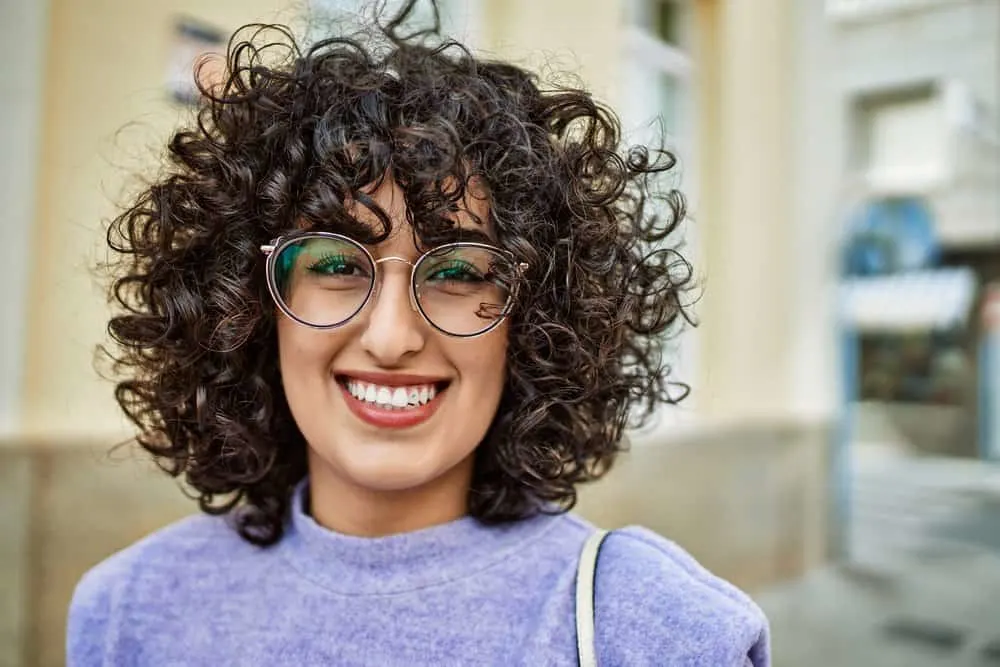
Have you ever wondered why some people have curly hair, and others don’t? What causes curly hair? The mystery of natural curls is fascinating, to say the least.
It turns out that there are several reasons why individuals may have curly hair, including genetics, hormones, humidity levels, styling habits, and more. In this article, we’ll explore the science behind curly hair and discuss how various elements contribute to this particular hair type.
Table of Contents
What Causes Curly Hair?
The main cause of curly hair: genetics. The texture of your hair is determined by the shape of your hair follicles, which is determined by your genetic makeup. When the follicle is oval or asymmetrical, it produces curly hair.
The curvature of the hair strand also plays a role in determining its curliness, as curlier hairs have more pronounced twists and bends. This explains why some people have naturally curly hair while others do not.
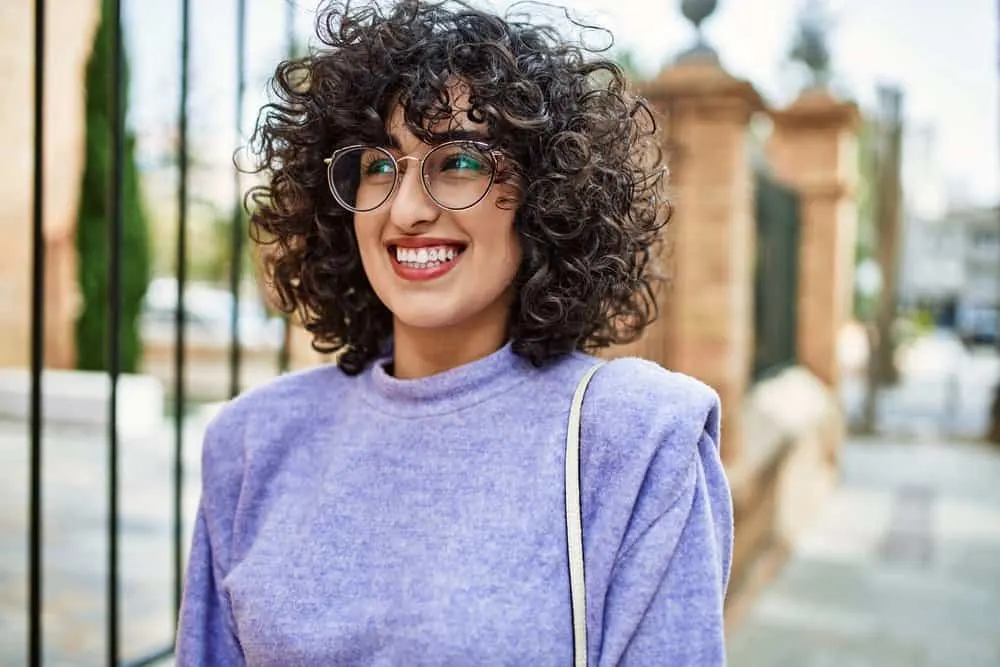
If your mom or dad had curly hair, you have a greater chance of having it. Curly hair tends to run in families with many generations of curly-haired people. But just because your parents had curly hair doesn’t mean you’ll automatically have it too.
Genetics is never that simple!
Jumping in a little deeper, you should know that just because your hair is curly now doesn’t mean it will stay that way. There are instances where genes responsible for hair texture turn on or off spontaneously. Whenever that happens, your hair could start growing curlier or straighter than before.
What Makes a Curly Hair Follicle Curl: Other Factors
Aside from genetics, many other things can affect how curly your hair appears. We’ll take a look at each of them in this section:
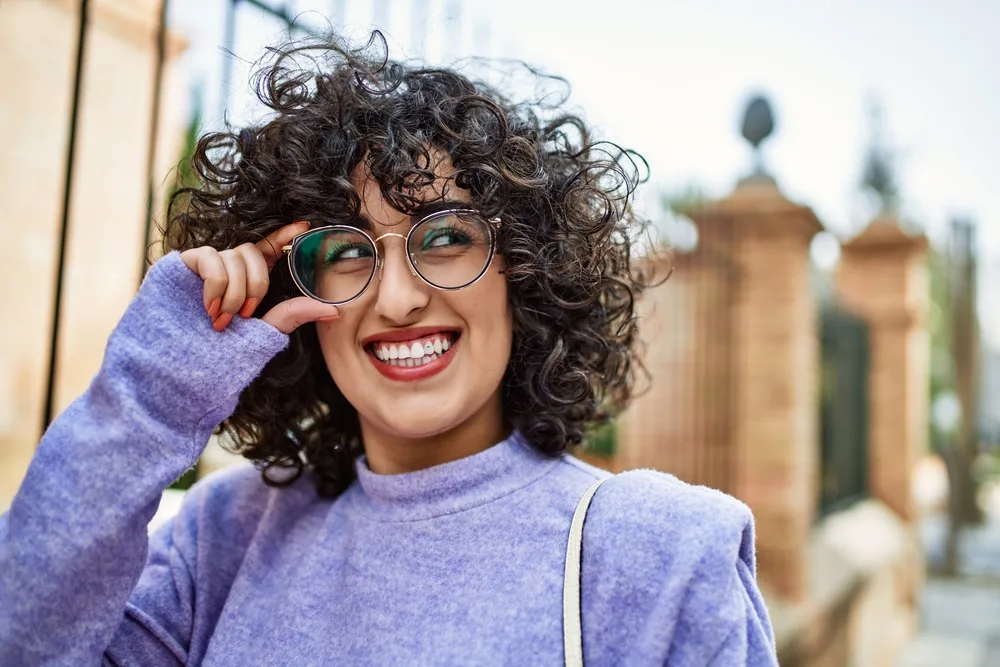
Humidity
If you’ve ever gone outside in the rain and witnessed your hair curl up, then you’ve seen the effects of humidity. The more humid the air is, the wetter your hair will get and the curlier it may become. Just keep in mind that humidity won’t make your hair curlier than it is in its natural state.
Hormones
Your hormones can also affect how curly your hair is. If you’re going through puberty, pregnancy, or another time marked by big hormonal shifts, your hair could become curlier as a result.
For example, when a woman’s androgens increase as a result of a hormonal shift, the shape of her hair follicles could change, giving way to a whole new hair texture.
This type of hair texture change may not be permanent. The hair could return to its usual state after the hormones level out. On the other hand, though, the change could be permanent. There’s no way to know for sure.
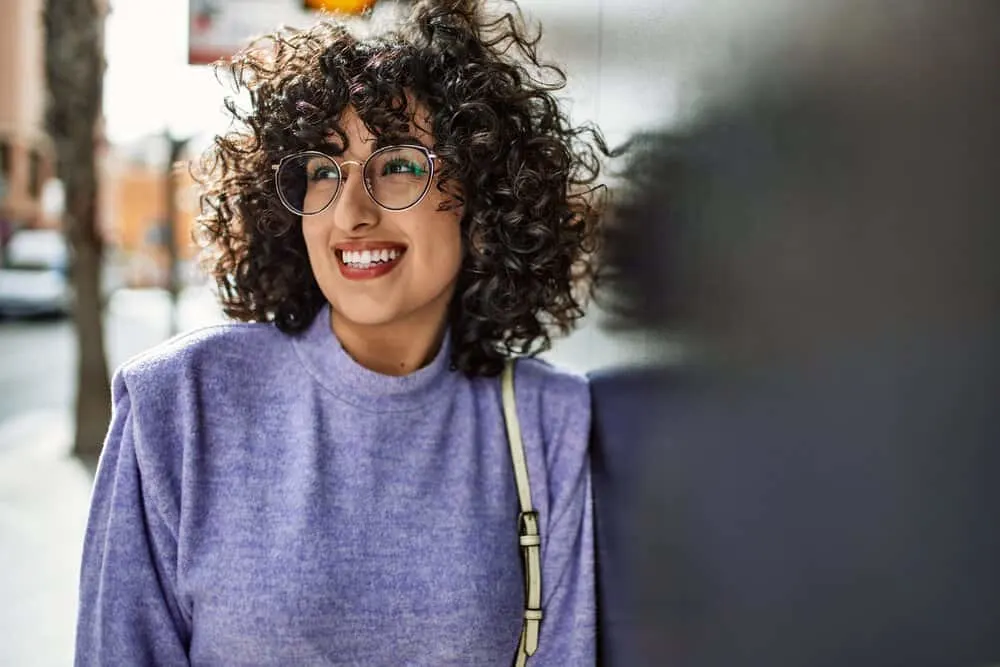
Your Hair Habits
Many of us use heat tools and hair chemicals regularly to maintain our favorite styles. Both of these have the potential to relax your curls. If you have been using tools and treatments like these for as long as you can remember, when you finally stop, your hair may look distinctively curlier than it usually does.
In addition to that, the way you style your hair can determine how curly you think your hair is. If you don’t normally scrunch your hair, moisturize it on a regular basis, or painstakingly define your curls through finger coiling, your curls may not be super obvious.
But if you ever begin to do these things, your curls could pop out and surprise you.
Product buildup from under-washing the hair can also affect your curl pattern. When your hair is coated in product residue and excess oils, the hair develops a weighty film that doesn’t let moisture in.
As a result, your curls may straighten out from being weighed down or moisture-deprived. But when you finally wash away the product buildup with a clarifying shampoo, your curls will spring back to life.
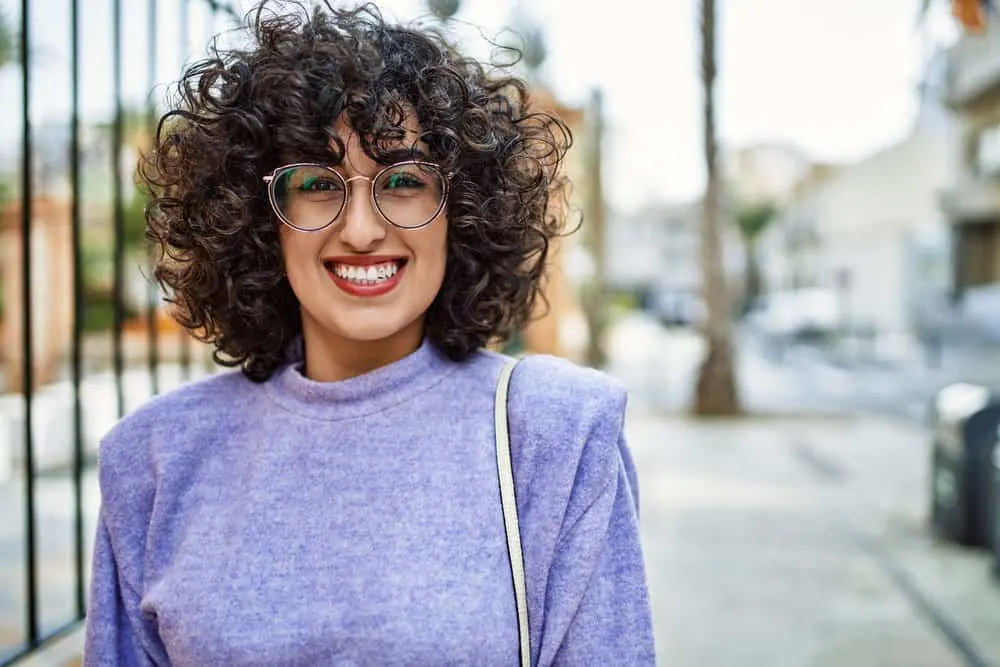
Medication Effects
Yet another thing that may affect your curl pattern is medication. Most medications will have no effect on your curl pattern, but some could. Here are a few medication types that have resulted in texture changes in users:
- Acne medications
- Cancer drugs
- Immune system medications
- Antiretroviral drugs
If you believe that medication is making your hair curly and you don’t like this effect, reach out to your doctor to see if there are any alternative drugs available.
What Ethnicity is Most Likely to Have Curly Hair?
Black people, or those with African ancestry, are most likely to have curly hair – usually tight, springy curls. It is less common for individuals of other races to have curly hair. But it’s important to note that individuals of all races can have curly hair.
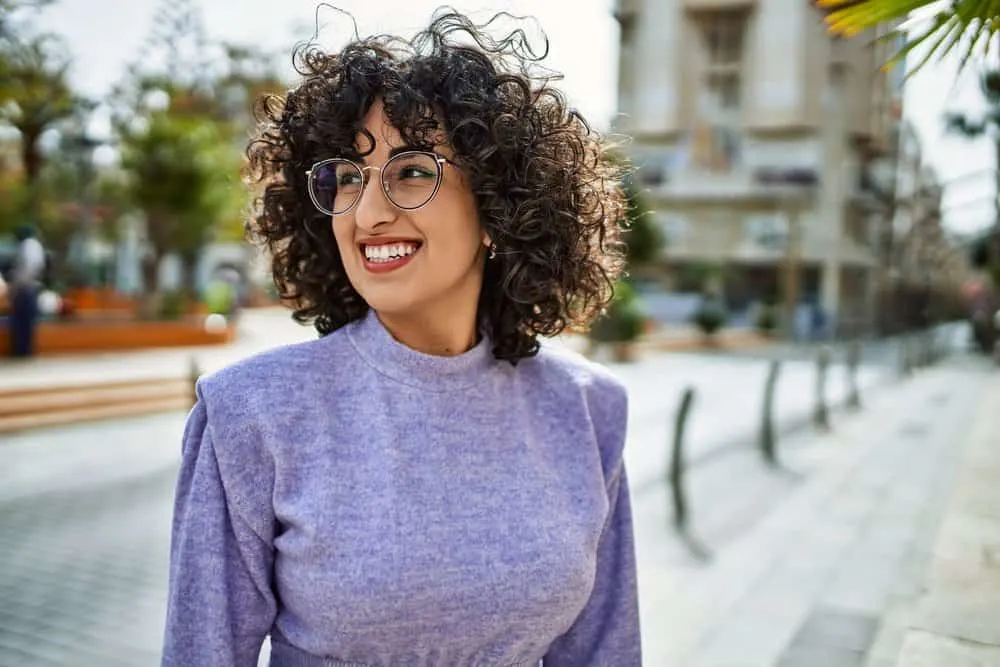
How to Get Rid of Curly Hair
Maybe you have curly hair and don’t like it. You don’t automatically have to like the way your hair grows out of your scalp. Whether you want to take a short break from your curls or completely eliminate them, you have options.
Here are the most promising:
- Straighten your hair. For temporary results, you can immediately straighten your curls with a heat tool, like a hot comb or a flat iron. Flat irons are usually the better option for those that want straight hair since most have a temperature control mechanism. If you decide to go this route, use a heat protectant beforehand.
- Get a relaxer or texturizer. A relaxer is a permanent chemical straightening treatment that can rid you of your curls within an hour or so. And your curls won’t come back until new hair grows in. Just be aware that relaxers can be extremely damaging to your hair, and they can cause scalp burns. So, if possible, go to a professional to get your relaxer. A texturizer can be likened to a relaxer – they both utilize the same main ingredients, but texturizers are considerably weaker. Go this route if you want less of a curl pattern but don’t want to give up all of your texture.
- Keratin treatment – Keratin treatments are a bit gentler than relaxers but can still give you straighter, silkier hair for about six months. The treatment entails applying a keratin solution to your hair and flat ironing it to seal it. While some sources state that you won’t suffer hair damage with this treatment, that’s not always true. Any time you add heat to your hair, you could end up with damage. What’s more is that sometimes, keratin treatments contain ingredients that could negatively affect your internal health. Be very selective with the keratin treatments you use.
Note: This is not an exhaustive list of hair straightening techniques.

How to Encourage Curl Definition
For those who have curls and want to bring out their full potential, this section is for you. Here are a few ways to encourage curl definition:
- Switch out your typical shampoo for a sulfate-free shampoo to avoid stripping your hair of all moisture and oils.
- Apply a conditioning treatment that is specifically formulated for curls and contains oils, humectants, hydrators, and other ingredients to help your hair thrive.
- Use a microfiber towel to gently scrunch and remove excess water from your curls. Regular bath towels rough up your hair cuticles and contribute to frizz.
- Apply a curl-enhancing cream or gel to damp hair, and distribute it evenly with your fingers to maximize curl definition.
- Use a diffuser attachment on your hair dryer to dry your curls without disturbing their shape.
- Sleep with your hair in a pineapple to keep your curls from losing their shape.
- Refresh your curls in the morning with water or a leave-in conditioner spray to help your curls draw up.
- Avoid heat tools as much as possible so that you won’t lose your curl pattern from heat damage.
Genes Control Curly Hair
So, there you have it! As you can see, many things can cause your hair to be curly, from genetics to your hair care and styling habits.
Whether you want to eliminate or promote your curls, we hope that you found the information you were looking for. We wish you the best with your hair!
